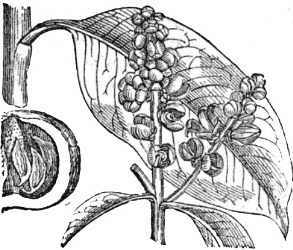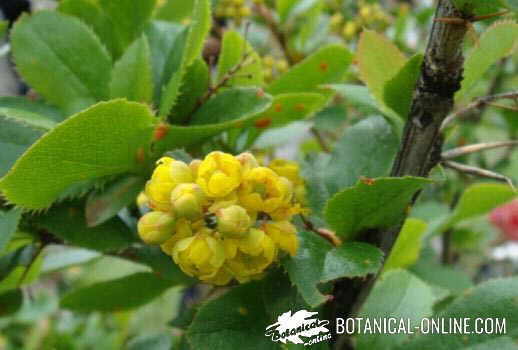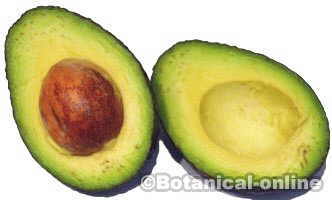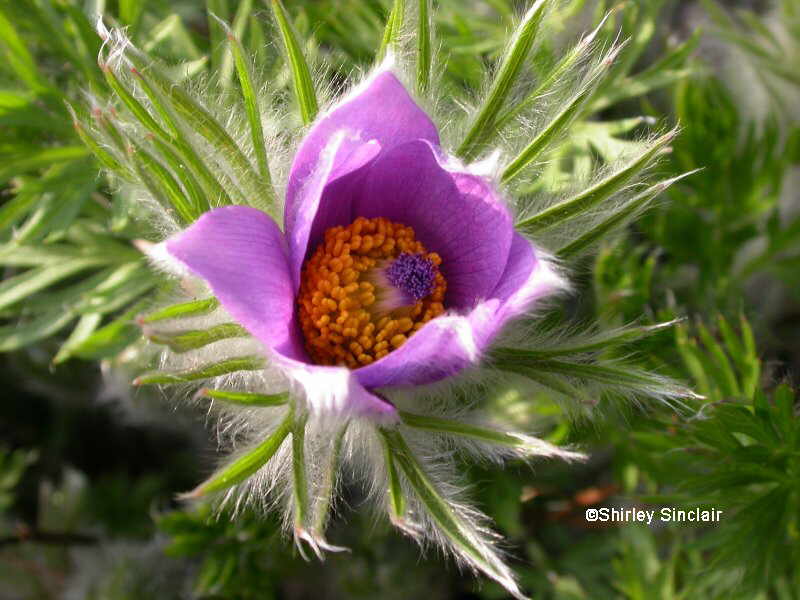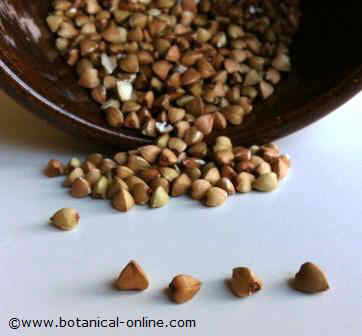Contents
- 1 ANTICANCER PROPERTIES OF MORINGA
- 1.1 Moringa as an alternative to chemotherapy
- 1.2 Properties of moringa that could make it very useful for the treatment of cancer.
- 1.3 Polyphenols of moringa for cancer prevention
- 1.4 Anti-cancer vitamins of moringa
- 1.5 Moringa glucosinolates for cancer treatment
- 1.6 Moringa tannins for cancer
- 1.7 Moringa saponins for cancer
- 1.8 Studies on the anticancer properties of the moringa
ANTICANCER PROPERTIES OF MORINGA
Moringa as an alternative to chemotherapy
The use of chemotherapy in the treatment of cancer carries a number of well-known side effects: vomiting, hair loss, anemia, renal toxicity, infertility, skin irritation, etc.
To avoid the appearance of side effects of chemotherapy many investigations with plants are being carried out.
Most of the plants that are investigated are plants with medicinal properties proven by modern studies or traditionally used as curatives.
Among them, one that seems to draw the most attention is moringa, whose medicinal uses referenced by tradition are very broad.
Properties of moringa that could make it very useful for the treatment of cancer.
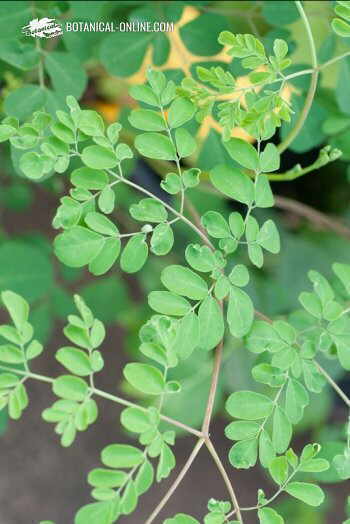 Leaves of moringa
Leaves of moringa
Moringa possesses a series of antioxidant and immuno-stimulating components that could have an effective role in the prevention and development of cancer.
Among them, we can mention the following:
Polyphenols of moringa for cancer prevention
Polyphenols, a type of phytochemicals, are considered one of the major anticancer principles. According to animal studies, polyphenols protect the cell from damage caused by X-rays, inhibit cell mutations and prevent the development of cancer cells.
They are composed of plants very abundant in fruits and juices squeezed or herbal teas from these plants. Polyphenols of red wine or black grapes, tea, coffee, and chocolate are well known. Vegetables, cereals, and legumes also have polyphenols.
Moringa is rich in polyphenols. The main polyphenols possessed by Moringa oleifera are flavonoids and phenolic acids.
The main flavonoids in the leaves of this plant are quercetin, kaempferol and myricetin. To a lesser extent, isorhamnetin.
As for phenolic acids, moringa mainly contains gallic acid and, to a lesser extent, ferulic, ellagic, caffeic, p-coumaric, genic and siringeic acids.
Anti-cancer vitamins of moringa
In addition to polyphenols, moringa is rich in vitamins with anti-cancer properties because they are vitamins with antioxidant power. These include vitamin C, vitamin A and vitamin E.
The moringa is very rich in vitamin C, with a content far superior to oranges. Vitamin C protects the body against oxidation by free radicals, toxins and contaminants, factors that may favor the development of cancerous tumors.
It should be noted that vitamin C is rapidly decomposed by heat and oxygen, so in this plant is found mainly in fresh leaves. When the leaves of the moringa dry, the vitamin C content decreases enormously.
Another of the antioxidant vitamins that moringa contains is vitamin A, especially in dry leaves. In this plant appears as betacarotene, which is transformed into vitamin A once ingested. Its beta-carotene content exceeds foods as well known as carrots, apricots or pumpkins.
Moringa also contains a high amount of vitamin E, in the form of alpha-tocopherol. Its content is similar to that of nuts.
Moringa glucosinolates for cancer treatment
Glucosinolates are sulfur compounds that give the spicy taste so characteristic to the food of the cabbage family. They appear in foods as well known as cabbage, arugula, cauliflower, purple cabbage, mustard, rapeseed, radish or turnips.
Moringa contains 4-0-alpha-1-rhamnopyranosyl-benzyl glucosinolate and 4-0-alpha-1-rhamnopyranosyl-benzyl isocyanate.
One of the most prominent properties of glucosinolates is their role in preventing cancer development. (More information about “glucosinolates for cancer“)
Moringa tannins for cancer
Moringa contains tannins, components that, in high proportions, are toxic, but, properly treated, have very outstanding medicinal properties, among which are, for example, their antibacterial or anti-inflammatory properties very suitable for the treatment of skin problems or their outstanding astringent properties for the treatment of diarrhea.
Tannins are being studied recently as a resource for cancer treatment. Moringa contains a quantity of tannins similar to that of walnuts, which is quite considerable, although within the limits allowed not to be harmful.
Moringa saponins for cancer
Moringa has a fairly high amount of saponins. The role that these components can play in cancer prevention is being studied.
Studies on the anticancer properties of the moringa
It has been proven in animal studies that the use of alcoholic and aqueous extracts of the leaves of the moringa inhibits the growth of cancer cells. The reason for this activity lies in its immuno-stimulating and antioxidant power.
Moringa preparations increase the defenses and make the organism more resistant.
On the other hand, the presence of antioxidants, which provides its richness in polyphenols, antioxidant vitamins, glucosinolates and isocyanates, tannins and saponins, leads to a reduction in the size of tumors.
All these experiments have been carried out on animals. All of them are very hopeful, but there are not enough studies for the moment in people who justify their use for the treatment of this disease.
* Related information: Other properties of moringa
![]() More information on moringa.
More information on moringa.


